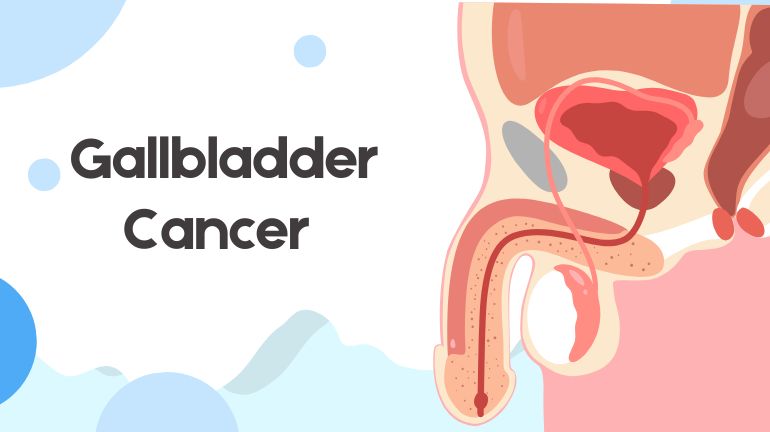
Bladder Cancer
Bladder cancer is a malignant condition where abnormal cells grow in the lining of the bladder, the organ responsible for storing urine. Most bladder cancers begin in the urothelial cells (also known as transitional cells) that line the bladder. Over time, the disease may invade deeper bladder layers and spread to nearby lymph nodes, kidneys, liver, bones, or other organs.
Bladder cancer is among the most common urinary tract cancers and is notable for its high recurrence rate, requiring long-term monitoring and care.
Causes of Bladder Cancer
- Genetic mutations in bladder lining cells.
- Exposure to carcinogens, especially aromatic amines and chemicals in the dye, rubber, leather, and textile industries.
- Smoking, which introduces carcinogens excreted in urine, directly affecting the bladder.
- Chronic infections or irritation, including recurrent urinary tract infections and bladder stones.
- Prior cancer treatments, such as chemotherapy drugs (cyclophosphamide) or pelvic radiotherapy.
Types of Bladder Cancer
- Urothelial Carcinoma (Transitional Cell Carcinoma): Most common type, arising from urothelial cells lining the bladder.
- Squamous Cell Carcinoma: Linked to chronic irritation and infections.
- Adenocarcinoma: Rare type, arising from glandular cells in the bladder lining.
- Small Cell Carcinoma and Sarcoma: Very rare, aggressive forms.
Risk Factors
- Cigarette smoking (the strongest risk factor).
- Occupational exposure to industrial chemicals.
- Age above 55 years.
- Male gender (men are more commonly affected).
- Chronic bladder inflammation (e.g., schistosomiasis, catheter use).
- Family history of bladder cancer.
Signs & Symptoms
- Hematuria (blood in urine): Often the first and most common symptom.
- Frequent urination or urgency.
- Pain or burning sensation while urinating.
- Pelvic or lower back pain.
- In advanced stages: weight loss, loss of appetite, fatigue, and swelling of legs.
Complications
- Local spread to ureters, kidneys, or reproductive organs.
- Hydronephrosis (swelling of kidneys due to urinary blockage).
- Anemia due to chronic blood loss.
- Recurrence, which is common in bladder cancer.
- Metastasis to bones, liver, or lungs.
Ayurveda’s Perspective on Bladder Cancer
In Ayurveda, bladder cancer is viewed as a disorder of Mutravaha Srotas (urinary channels), related to Mutraghata (obstruction), Mutrakrichha (dysuria), and Arbuda (tumor).
- Vata vitiation → obstruction, pain, cachexia.
- Pitta vitiation → burning urination, bleeding, inflammation.
- Kapha vitiation → excessive mucus, heaviness, abnormal cell growth.
Ayurvedic treatment aims at:
- Shodhana (detoxification): removal of accumulated toxins.
- Shamana (pacification): balancing aggravated doshas with herbal formulations.
- Rasayana (rejuvenation): restoring Ojas (vital energy) and preventing recurrence.
- Mutravaha Srotas protection: ensuring healthy urinary flow and bladder function.
Bladder Cancer Treatment at Nageswara Ayurvedic – Role of Berberine, Ginger & Curcumin
At Nageswara Ayurvedic, bladder cancer management integrates three powerful anti-cancer agents:
- Berberine (from Berberis aristata): A bioactive alkaloid with proven anti-cancer, anti-inflammatory, and antimicrobial properties. Berberine induces apoptosis in cancer cells, inhibits angiogenesis, and prevents tumor recurrence. It is especially effective in bladder cancer due to its high urinary excretion.
- Zingiber officinale (Ginger): Acts as a potent anti-inflammatory and antioxidant herb. It reduces bladder inflammation, improves circulation, protects mucosal lining, and relieves chemotherapy-induced nausea and vomiting.
- Curcumin (from Haridra/Curcuma longa): A highly researched compound with anti-proliferative, antioxidant, and immunomodulatory effects. It suppresses abnormal cell growth, enhances immunity, and protects bladder tissues from oxidative damage caused by toxins or therapies.
Together, these herbs form the core herbal protocol at Nageswara Ayurvedic, working synergistically to shrink tumors, reduce inflammation, and improve patient resilience.
Plant-Based Bhasmas (Minerals) for Bladder Cancer Support
At Nageswara Ayurvedic, plant-based Bhasmas are used as a safer and more effective alternative to traditional heavy-metal Bhasmas. These botanical mineral extracts are purified and standardized to ensure maximum bioavailability and minimal toxicity.
In bladder cancer care, they play a crucial role in strengthening tissues, reducing treatment-related side effects, and supporting overall immunity.
Calcium from Cissus extract promotes bladder wall repair, enhances cellular regeneration, and prevents erosion or ulceration of the mucosa.
Magnesium from Moringa leaves maintains electrolyte balance, assists in detoxification, and reduces neuromuscular stress commonly seen in cancer patients.
Iron from Curry leaves helps correct anemia caused by hematuria (blood in urine) and improves oxygen supply to tissues.
Zinc from Guava leaves accelerates DNA repair, strengthens immune function, and supports wound healing post-surgery or radiation.
Copper from Sesame seeds acts as a strong antioxidant, protecting bladder cells from oxidative injury and inflammation.
Selenium from Mustard seeds further reduces oxidative stress and safeguards against chemo- and radiotherapy-induced cellular damage.
Manganese from Bay leaves is vital for enzymatic detoxification and repair of bladder tissues, while Potassium and Sodium from Moringa and Basil extracts maintain hydration, regulate urinary function, and ensure metabolic stability.
Together, these plant-based minerals form a synergistic Rasayana support system, helping bladder cancer patients achieve faster recovery, better tolerance to modern treatments, and improved long-term quality of life.
Treatment Relevance at Nageswara Ayurvedic
At Nageswara Ayurvedic, bladder cancer management is based on a personalized, holistic approach that integrates Shamana therapy (pacification), Rasayana rejuvenation, classical Rasayana herbs, plant-based minerals, diet, and lifestyle modifications. The aim is not only to control tumor growth but also to strengthen immunity, protect urinary tissues, and prevent recurrence.
1. Shamana (Pacification)
The Shamana stage focuses on symptom relief, dosha balance, and tumor suppression. A combination of Berberine, Ginger, and Curcumin is prescribed for their proven anti-cancer, anti-inflammatory, and antioxidant properties. These are supported by herbs like Punarnava, Varuna, Gokshura, and Guduchi, which enhance urinary flow, clear obstructions, reduce edema, and protect the Mutravaha Srotas (urinary channels). Collectively, this regimen helps reduce tumor burden, control bleeding, and improve bladder function.
2. Rasayana Therapy (Rejuvenation)
Rasayana therapy is central to Nageswara Ayurvedic’s bladder cancer care. Here, Alocasia cucullata is combined with Ashwagandha, Amalaki, Brahmi, and other Rasayana herbs, along with plant-based Bhasmas (mineral extracts), to rejuvenate tissues, restore Ojas (vital energy), and prevent recurrence. This stage strengthens immunity, accelerates recovery after surgery or radiation, reduces fatigue, and improves overall quality of life.
3. Classical Rasayana Herbs for Bladder Cancer
- Guduchi (Tinospora cordifolia): A powerful immunomodulator that detoxifies the system and reduces chemo/radiotherapy side effects.
- Tulsi (Ocimum tenuiflorum): Potent antioxidant and adaptogen, protecting urinary tissues from oxidative stress and infections.
- Ashwagandha (Withania somnifera): Restores stamina, reduces fatigue, and induces apoptosis (programmed cell death) in abnormal cells.
- Amla (Phyllanthus emblica): Rich in Vitamin C and antioxidants, reduces inflammation, corrects anemia from hematuria, and prevents recurrence.
- Shatavari (Asparagus racemosus): Supports urinary and reproductive tract health, balances aggravated Pitta, and improves mucosal healing.
- Gotu Kola (Centella asiatica): Promotes tissue repair, enhances microcirculation, and reduces post-surgical or radiation-induced inflammation.
4. Diet & Lifestyle
Recommended: Laghu Ahara (light diet) with barley, pumpkin, bottle gourd, turmeric, green leafy vegetables, and fresh fruits.
Avoid: Alcohol, smoking, red meat, fried/oily foods, packaged items, and incompatible food combinations (Viruddhahara).
Lifestyle: Yoga, meditation, and Pranayama (especially Anulom-Vilom and Bhramari) to improve urinary circulation and reduce stress.
5.Supportive Role with Modern Care
Nageswara Ayurvedic therapy supports patients undergoing chemotherapy, radiotherapy, or surgery by reducing side effects such as nausea, fatigue, hematuria, and bladder irritation. This integrative approach helps patients recover faster, maintain quality of life, and reduce recurrence.
